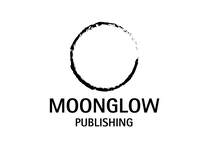Little Raven - Activity 2
Prompting questions
Does the author like Ravens?
What is your opinion about Ravens?
Are Ravens the same as crows?
On page 2 of the book, the author describes the raven as having colour in its feathers, why would the author describe a black bird like this?
Why does the author use a crown to represent the raven? What do you think this means?
Why do you think the raven thanks the reader at the end of this book?
Which words rhyme in the book and where do you find the rhyming words?
***
Once you have read through the book once and had a class discussion, read the story again as a class and ask if any of their opinions have changed and why?
Ask again what they think the meaning of this story is? Is there a moral? How could the students use the message in the story in real life?
Does the author like Ravens?
What is your opinion about Ravens?
Are Ravens the same as crows?
On page 2 of the book, the author describes the raven as having colour in its feathers, why would the author describe a black bird like this?
Why does the author use a crown to represent the raven? What do you think this means?
Why do you think the raven thanks the reader at the end of this book?
Which words rhyme in the book and where do you find the rhyming words?
***
Once you have read through the book once and had a class discussion, read the story again as a class and ask if any of their opinions have changed and why?
Ask again what they think the meaning of this story is? Is there a moral? How could the students use the message in the story in real life?
Activity 3 - Word Hunt
Once you have read Little Raven to the students, have the students go through the text and select any unknown words from the book.
Add the words to a class “word wall” and have students use dictionaries or class discussion to come up with meanings to the new words.
***
Note: Nesciently is not a real word however nescient is. The author of the book needed to create an adverb to describe the act of being nescient.
Add the words to a class “word wall” and have students use dictionaries or class discussion to come up with meanings to the new words.
***
Note: Nesciently is not a real word however nescient is. The author of the book needed to create an adverb to describe the act of being nescient.


